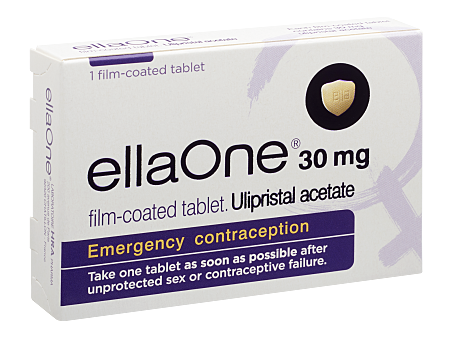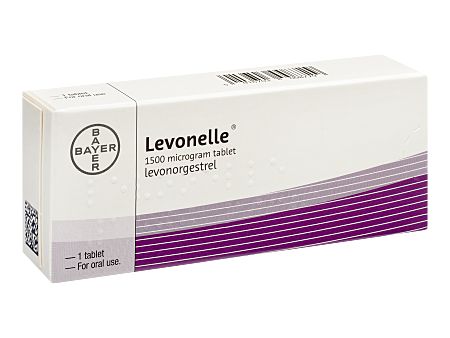Morning After Pill Side Effects
What Are the Side Effects of the Morning After Pill?
Like most medications, the morning after pill can cause side effects in some women. Whether you have just taken the morning after pill or are going to use it in the future, it is good if you know what to look out for.

"The 'morning after pill' should be used in emergencies only. It helps to prevent pregnancy if you have had unprotected sex or when your contraception has failed. You should not take it on a regular basis, as there are much better forms of contraception."


Medically reviewed by
Dr Zenon AndreouLast reviewed: 03 Aug 2020
- 1. What Are the Side Effects of the Morning After Pill?
- 2. Which Side Effects Are Common?
- 3. Which Side Effects Do Different Brands Cause?
- 4. What Happens When You Take the Morning After Pill?
- 5. The Morning After Pill and Bleeding
- 6. Is the morning after pill safe?
- 7. Is the Morning After Pill Bad for You?
- 8. When Do I Need to See a Doctor?
- 9. Myths and Facts
Which Side Effects Are Common?
The morning after pill contains similar hormones as your normal contraceptive pill, just in a higher dose. That way, it can prevent pregnancy even when you have had unprotected sex. Due to the higher dose of hormones, it is more likely to cause noticeable side effects. Some women who take the morning after pill for example experience abdominal pain after taking it. In some cases, the morning after pill also causes nausea, headache or tiredness.
It is also not unusual for women who have recently taken it to experience spotting or bleeding. If the morning after pill makes you vomit, you need to contact your doctor or pharmacist, as you may need to take another one.
Which Side Effects Do Different Brands Cause?
There are two commonly prescribed brands of the morning after pill: ellaOne and Levonelle.
ellaOne - Common side effects
- nausea
- abdominal pain
- vomiting
- upper abdominal pain
- abdominal discomfort
- breast tenderness
- headache, dizziness
- painful menses,
- pelvic pain
- tiredness
- mood swings
- muscle pain
- back pain
Levonelle - Very common and common side effects
- feeling sick
- lower abdominal pain
- irregular bleeding until your next period.
- tiredness
- being sick
View Morning After Pills

Please check your spelling or try another treatment name.
What Happens When You Take the Morning After Pill?
When you take the morning after pill, the hormone it contains prevents you getting pregnant. It does so by thickening the mucus at the entrance to the womb (so that sperm can’t get to the egg), altering the lining of your womb (so an egg can’t implant) and by preventing ovulation.
The Morning After Pill and Bleeding
It is not unusual for the morning after pill to cause irregular bleeding. You may notice some spotting or unusual bleeding, which may persist until your next period. You don’t need to worry about the bleeding unless it becomes excessive or if it doesn’t stop.
Does the morning after pill affect my period?
The morning after pill may not only cause irregular spotting and bleeding but it may also have an impact on your next period. Although most women still have their period on time, you may have it several days later or earlier than usual. If your period is more than five days late you should speak to a doctor who will check whether you are pregnant. The same applies if you have a very light or heavy period.
Is the morning after pill safe?
It is safe to take the morning after pill in situations where you need emergency contraception. Both morning after pills were found to be safe in medical trials.
In very rare cases, some patients develop an allergic reaction to the hormone in the morning after pill. If you encounter symptoms of an allergic reaction, see a doctor without delay. Signs of an allergic reaction can include an itchy rash or facial swellings.
Is the Morning After Pill Bad for You?
The morning after pill can cause side effects but it is very rare for it to cause any serious health problems. However, it is not suitable for regular use and you should avoid using it on a regular basis.
When Do I Need to See a Doctor?
You need to speak to a doctor after taking a morning after pill if:
- you experience an allergic reaction (may cause skin rash, facial swellings and difficulty breathing)
- your next period is more than 5 days late or very light
- you have had unprotected sex with someone who may have a sexually transmitted disease
- you vomit or have diarrhoea within three hours of taking the tablet
- you experience side effects which bother you or which persist after the treatment
Myths and Facts
Myth: The morning after pill is dangerous.
Fact: Like all other medication, the morning after pill was tested in extensive clinical trials. It does not affect your fertility in the long run and has not been found to have a lasting effect on your body. However, you should not take it on a regular basis, it is for emergencies only.
Myth: Taking the morning after pill is like having an abortion.
Fact: The morning after pill does not cause an abortion and it won’t work if you are already pregnant. Like the normal contraceptive pill, the morning after pill prevents the egg from implanting in the womb, thus preventing pregnancy instead of terminating it. However, in the case of ellaOne, it is not known what the effect on a foetus might be so you should not take it if there is any chance that you may already be pregnant.
Myth: The morning after pill is as effective as the contraceptive pill.
Fact: While emergency contraceptive pills drastically reduce your risk of getting pregnant after unprotected sex, they are less effective than regular methods of contraception such as the pill and the condom. You should always use protection when you have sex and use the morning after pill in emergencies only.
Myth: Taking the morning after pill means I am protected for several days.
Fact: The morning after pill prevents pregnancy after an episode of unprotected sex but it does not provide any protection during the following days. You need to use contraception the next time you have sex.



